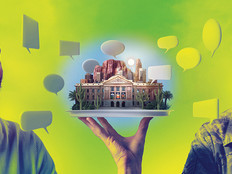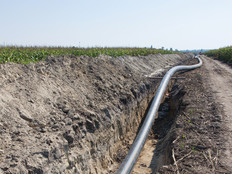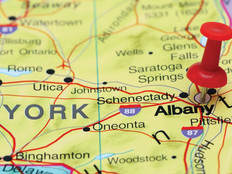How Technology Is Reinventing the Library Experience
Forget what you know about traditional libraries, and imagine what a 21st-century people’s university would look like.
If you talk to the visionaries who are creating the libraries of the future, you’ll hear about 3D printing and scanning; makerspaces; laser cutters; badging systems; resources for entrepreneurs, students and job seekers; and a plethora of technology-based classes for novice and advanced learners.
Today’s modernized library systems are offering patrons more than collections of printed books, free movie rentals and Internet access on a few desktop computers. Cleveland, Chicago and Washington, D.C., library systems are among a growing number of institutions that are imagining and creating libraries of the future.
“This could be something much larger than what people have traditionally thought of as a library service, and I think we’re doing a great job of changing those hearts and minds of [people who say], ‘I didn’t know I could do that at the library’ or ‘I didn’t know I would be going to the library this often’ or ‘I didn’t know I would be getting educated at the library [and] certified at the library,’” says Nick Kerelchuk, manager of the Digital Commons at the Martin Luther King Jr. Memorial Library, in Washington, D.C.
The Digital Commons isn’t your average library space, and Kerelchuk isn’t your traditional library manager, especially if you consider a white shirt and tie to be traditional. He looks more like a young CEO of a Silicon Valley startup, and his mindset matches his look.
Kerelchuk recently returned from the Maker Faire Bay Area 2014 in Silicon Valley, which is often described as “part science fair, part county fair and part something entirely new.” These types of events help Kerelchuk to stay relevant and glean ideas from tech enthusiasts, commercial vendors, educators and other “makers.”
“I guess I’ve got to dress the part,” he joked. “I’ve got to fit in with everybody.”
What Digital Looks Like at MLK
Eleven months ago, the library erected its Digital Commons area, complete with 3D printers, collaborative meeting spaces, an Espresso Book Machine and a digital bar, where people can test a number of tablet devices and learn how to access library resources electronically. And that’s only the beginning.
Today, the 42-year-old library is offering patrons a taste of what’s to come in 2020, after the facility is gutted and completely renovated. On any given day, as many as 300 people are in the first-floor Digital Commons area, creating designs on Mac computers, working quietly in glass-enclosed meeting rooms or attending any of the 50 to 70 classes that the library offers each month, such as Intro to 3D Printing, Blogging Basics and Computer Programming.
The library’s digital bar is akin to Best Buy, in that people can test a number of tablet devices, gauge what the operating systems have to offer and learn how they can access free movies, digital books and other online resources.
“We’ve already outgrown ourselves in the 11 months,” Kerelchuk says. His team is making plans for a fabrication lab — fab lab for short — where people can have a hands-on experience with the tools and technology that are needed to create innovative projects. The second-floor space is expected to open in early 2015 and will also include a sound studio and visual-production area, laser cutters, workbenches, and tools for designing furniture and other projects.
“This is a beta of what’s to come in the next five years,” according to Kerelchuk.
Staying Relevant in the Digital Era
The library’s staff trains between 500 to 700 people each month, but librarygoers want more. As they complete intermediate classes to boost their digital skills, patrons are asking for advanced classes to continue learning, Kerelchuk notes.
As a next step, the library is exploring how it could implement a badging system to validate that an individual has certain skills, such as 3D printing. Ideally, the library would partner with a large institution or company to create this system. Kerelchuk believes this resource could be available to D.C. residents and other library patrons in the next two years or so.
In this new digital era, libraries are grappling with how to stay relevant when many people can download e-books, stream videos on Netflix and access the Internet in their hands.
But staying relevant isn’t about gleaning ideas only from fellow libraries; it’s also modeling what businesses, incubators and organizations like TechShop and ideaspace are doing, Kerelchuk says.
Every other month the library hosts the D.C. Tech Meetup, where entrepreneurs can pitch their ideas to like-minded people and potential investors. Hundreds of people pack the Great Hall area, and the community is embracing the library as a tech hub.
“We have made an impact that I don’t even think we fully understand what we’ve done here yet,” Kerelchuk says. “We’ve filled a need that was larger than what we thought.”









